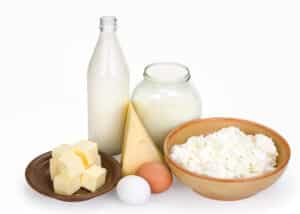If Your Elderly Loved One Has Parkinson’s They Should Avoid These Foods
When your elderly loved one is diagnosed with Parkinson’s disease, you may be scrambling with ways to help them. Pain can be a common symptom for people with Parkinson’s, but there are things that can also exacerbate the pain. Certain foods should be avoided, and it is crucial to help your senior navigate around the complex issue of their diet.
Diet and nutrition have a significant influence on improving the general health of Parkinson’s patients. You know that fruits and veggies are considered healthy, but that’s not all you need to know when it comes to diet. Some foods should be avoided when your loved one has Parkinson’s.
High Protein Foods

Senior Care Philadelphia, PA: Foods to Avoid
You might be thinking, isn’t protein good for my senior mom? Your loved one must consume protein as part of a healthy diet. However, for some individuals with Parkinson’s disease, taking their medication with high-protein meals might make it difficult to absorb sufficient amounts of the drug to effectively manage their symptoms. If your loved one falls into this group, discuss protein supplementation with his or her physician. Some seniors may need to reduce the quantity of protein they consume, while others may just need to alter the time of their protein intake.
They Should Avoid Tons of Dairy
No one knows why, but those who consume a lot of dairies seem to have a greater chance of acquiring Parkinson’s disease. Those who have already been diagnosed with the condition might delay its course by consuming less dairy. Your loved one should also choose low-fat alternatives when consuming dairy items such as cheese or milk. If seniors need help preparing meals low in dairy, they may need to visit senior home care for assistance. This professional help may allow them to age in place for longer, even with a disease like Parkinson’s.
Highly Processed Foods
Parkinson’s disease patients often develop constipation. The absence of fiber in processed meals might make it harder for elderly individuals to have regular bowel motions. These packaged meals are also often heavy in salt and nitrites, which are detrimental to brain function. Unfortunately, packaged and processed foods are easier to make, especially if they’re on their own. If a senior needs help to prepare fresh meals, it’s time to consider hiring senior home care, even part-time, to help them out.
They Should Avoid Hard to Chew Foods
Your loved one may have difficulty chewing and swallowing meals as Parkinson’s disease develops. To avoid choking, preparing nutritious meals like vegetables may be necessary rather than providing them raw. Stews are an excellent method to tenderize both meat and vegetables. You can also prepare mashed potatoes and puréed carrots to meet your loved one’s nutritional requirements.
Super Salty Foods
Seniors must have healthy blood circulation to lessen the consequences of Parkinson’s symptoms. High blood pressure, which may exacerbate Parkinson’s symptoms, can be caused by consuming salty foods such as chips and canned goods.
Stay Away From Acids
Occasionally, the Parkinson’s disease drugs provided to older adults might produce nausea as a side effect. Seniors may dread meals due to nausea, which might be a significant barrier to meeting their dietary objectives. Observe your loved one’s symptoms to establish whether or not he or she has post-meal nausea. If so, you may want to restrict the consumption of acidic foods such as citrus until your loved one’s body has had sufficient time to metabolize the medicine.
If you or an aging loved one are considering Senior Care in Philadelphia, PA please contact the caring staff at True Direct Home Health Care today.
- How Home Health Providers Offer Education Amidst Physical Health Changes - March 5, 2024
- Spring Activities for Seniors - February 21, 2024
- How to Help an Older Loved One with Cataracts? - February 6, 2024
